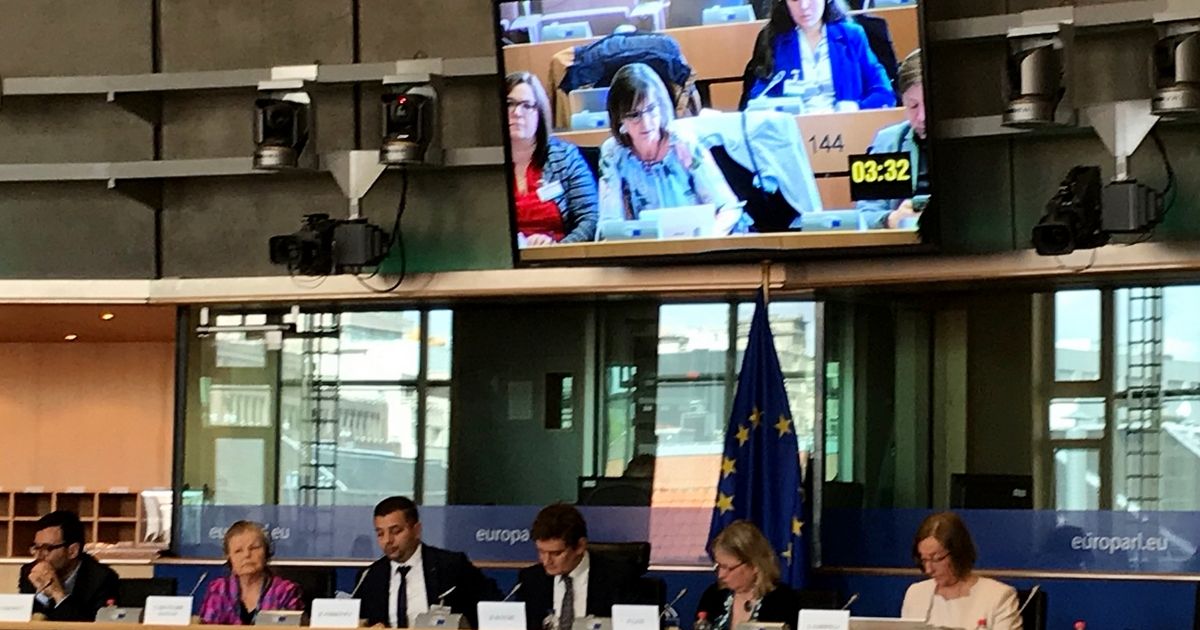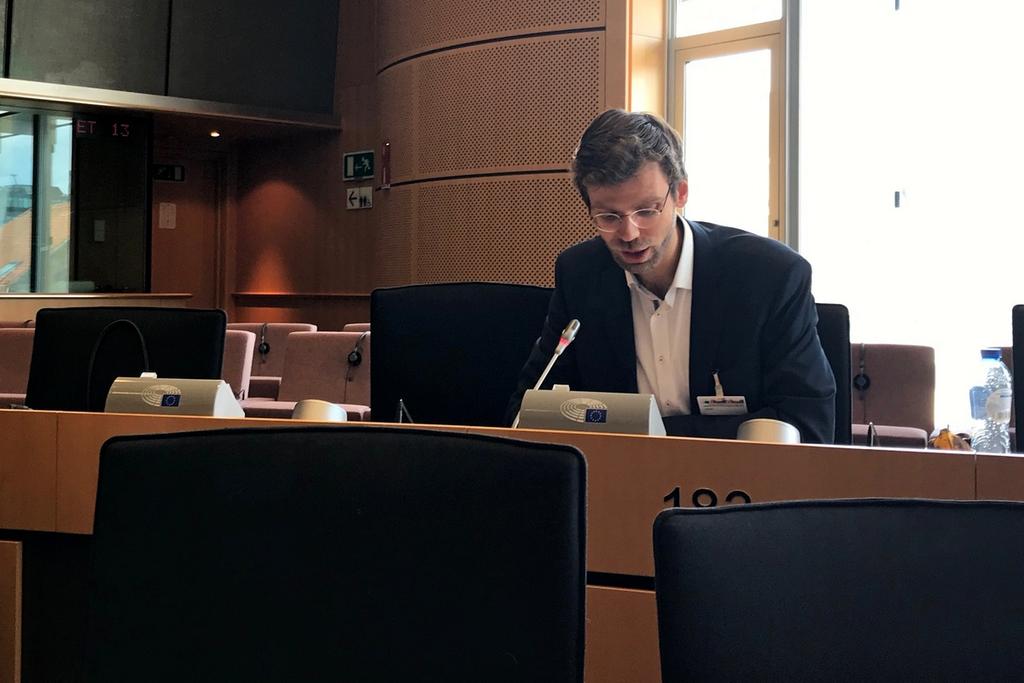
FUEN members presented their views and problems at Regional Forum on minority education
09.05.2019Members of the FUEN Working Group on Education led by Vice President Olga Martens and representatives of FUEN Member Organisations took part in Regional Forum on Education, Language and the Human Rights of Minorities, held in the European Parilament on 6-7 May 2019. The Forum was organized by the UN Special Rapporteur on minority issues and the Tom Lantos Institute in Budapest in partnership with several minority organisations including the FUEN.
FUEN President Loránt Vincze presented the main conclusions of the organisation’s expert team on education.
Pier Bergsma, Chair of the Council of the Frisian movement talked about the contradiction between principles, identity and interests. Frisian is the first language of 300,000 people in Fryslân, in the northern part of the Netherlands, Frisian is compulsory subject in schools and they have trilingual primary schools. “Strange enough, most parents and schools don’t think Frisian very important, because the language has no economic value at all. You can get any job in the region without speaking a word of Frisian. The visibility of Frisian in the region is poor. Our linguistic landscape is failing. Legislation, human rights and education are important, but to survive minority languages are also strongly in need of economic value and visibility in daily life” – Pier Bergsma pointed out in his intervention.
In his intervention Stere Stamule, the representative of the Aromanian community from Romania addressed the lack of constant support and of a coherent language and cultural policy for the Aromanian community, stating that it will soon lead to a stop in their involvement in saving their language and culture. He asked fo support in addressing these problems to the Romanian and Greek authorities.
Júlia Kuczik said that despite a favorable public policy the Slovak community in Hungary still faces challenges, such as the lack of teachers with adequate qualification who are partly compensated by host teachers from Slovakia and motivated by scholarships given to teachers for further studies. Questions about curicula that is overloaded with high number of lessons taught is also a problem, furthermore there is a doubt whether they should teach Slovak as a foreign language or rather develop the methodology of teaching it as a minority language.
In his intervention, Stefan Pitz, a member of the German-speaking Community in Belgium presented the work of the working group inside YEN (Youth of European Nationalities) dedicated to politics and minority rights. “Every new generation comes with an own vision of the future that should be heard, including the preservation of language diversity. We want to know how we can contribute to the improvement of the minority languages or minorised languages and how we can help the organisations or institutions that work around this question” – he said.
Gusen Shakhpazov, Executive Director of the Federal Lezgin National Cultural Autonomy (FLNCA), a Russian public organization engaged in activities for the protection of national and cultural rights of the Lezgin people, presented the situation of these autochthonous peoples of the Caucasus, historically living in southern Dagestan and Azerbaijan, pointing out the problems they face in Azerbaijan. The teaching of the Lezgian language is carried out only in one district, and even there it is only present as a separate subject "native language". He also presented the steps they consider necessary: he following steps are necessary: construction of new schools in the areas where national minorities live compactly, development of high-quality scientific and educational materials in minority languages using existing alphabetic systems (Cyrillic in the cas of the Lezgin people), inclusion of minority languages in school curricula as compulsory subjects, development of bilingual education in pre-school institutions and schools (in the state language and the language of the national minority), establishment of a training system for teachers of national minority languages in colleges and universities, training courses for teachers of national minority languages.
The Brussels forum was the first of three regional forums to be convened on the topic of education in, and teaching of, minority languages. Their main aim is to provide regional insights for the development of a set of guidelines or a technical handbook focusing on education in, and teaching of, minority languages. Discussions at the forums will also inform the recommendations of the 12th session of the UN Forum in 2019.


COMMUNIQUÉ DE PRESSE
- What do minorities expect from the European Union? Read the FUEN EU Elections Manifesto!
- Minorities without a mother state come together in Spreewald/Błota
- Annual Conference of the FUEN Education Working Group: Focus on the primary level
- The Forum of the Regions goes to Donostia-San Sebastián
- Challenges of primary education to be discussed at the Education Working Group’s annual meeting in Helsinki
- FUEN TAG held its first online meeting in 2024
- The ongoing war in Ukraine forces the Crimean Tatars to withdraw from EUROPEADA 2024
- 100 days to UEFA EURO 2024: FUEN presented EUROPEADA at BMI’s event
- This is the beginning: minority experts from all over Europe answer FUEN's call
- Experts gather to discuss ways forward for minority protection at FUEN’s conference in Brussels














